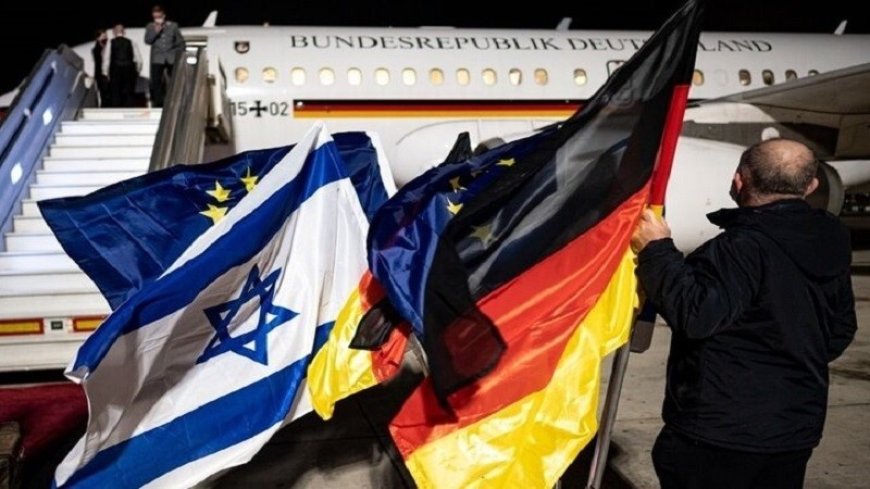Germany’s Soft Power Waning Due to Unconditional Support for Israel

Germany's unwavering support for Israel and perceived double standards regarding the suffering of Palestinians have led to a significant decline in its soft power in West Asia.
For decades, Germany has played a crucial role in fostering reconciliation between Israel and the Arab world, earning substantial influence as a mediator in trade and economic relations. However, the current geopolitical climate in West Asia has shifted dramatically. Support for Palestinian resistance is on the rise, and many in the Arab world view Israel's actions in Gaza as a "genocidal war."
Germany initially supported Israel's offensive in Gaza, influenced by the historical context of the Holocaust. Chancellor Olaf Scholz, in his speech on October 7, 2023, shortly after the commencement of the Al-Aqsa Flood operation, firmly stated Germany’s position: "There is only one place for Germany right now: to stand with Israel."
Since the beginning of the conflict, Germany has significantly increased its arms exports to Israel, becoming the second-largest supplier of military equipment to the country after the United States. This stance has sparked widespread protests in Arab nations, including Tunisia, where anti-German sentiment has surfaced for the first time in response to Berlin's support for what protestors describe as Israel's "child-murdering regime."
The controversy peaked in October last year when German Ambassador to Tunisia Peter Progel sparked outrage at a school opening ceremony by commemorating Israeli victims, following a solidarity statement with Gaza by the Tunisian Minister of Education. This incident led to protests demanding Progel’s resignation.
The impact of Germany's stance is also felt within its institutions operating in West Asia. An investigation by Foreign Policy involved interviews with nine employees from six German institutions across five West Asian countries. The interviewees expressed that Germany’s hardline stance on the Gaza conflict has compromised their ability to work effectively with local partners and communities.
Long-serving employees in the region acknowledge that Israel's occupation of the West Bank constitutes apartheid, and criticize Germany's foreign policy as disconnected from the realities of the Israeli-Palestinian conflict. They report that terms like "apartheid" and "genocide" are commonly used among colleagues to describe Israel's actions, despite the German government's rejection of such terminology as anti-Semitic.
Employees of the German International Cooperation Agency (GIZ) conveyed to Foreign Policy that Germany's involvement in the conflict has generated significant anger and resentment within the organization. Consequently, many German entities operating in West Asia have discreetly canceled public events, postponed report publications, or removed logos from projects associated with Israel to safeguard their staff and local partners.
Public perception of Germany's foreign policy in the Arab world has also shifted. A 2020 survey by the Washington Arab Center found that a majority of Arabs viewed Germany's foreign policy positively. However, a study published by the Doha Institute in January 2023 revealed that 75% of respondents in 16 Arab countries now hold a negative view of Germany's actions amid the Gaza war.
The changing sentiments underscore the broader geopolitical implications of Germany's unwavering support for Israel, highlighting the delicate balance of maintaining diplomatic relations while addressing humanitarian concerns in a complex and volatile region.













































